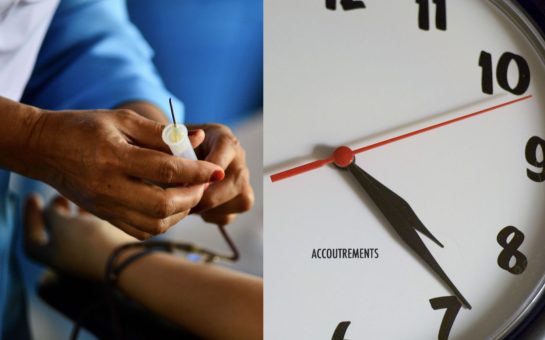Gay rights campaigner Peter Tatchell is criticising an NHS campaign launched on Thursday to encourage more men to give blood in the new year.
The campaign drew criticism for encouraging more blood donations by men despite the lack of legal parity for gay men who wish to donate blood, who, as of September 2017, must wait three months after sexual activity before being allowed to donate.
Mr Tatchell said: “Part of the reason there are fewer male blood donors is the blanket restriction on gay and bisexual men. Under the current rules, all sexually active gay and bisexual men are treated as having the same risk factors, when many are no risk at all.
“Instead of having a universal three month deferral period, the blood service should switch to individual assessment. This would allow no-risk gay and bisexual men to donate and thereby boost the blood supply.”
Figures released by NHS Blood and Transplant show that last year 13,719 women who registered last January became blood donors, compared to only 6,092 men.
Mike Stredder, director of blood donation for NHS Blood and Transplant, said: “It’s vital that more men start donating blood because their blood is used to provide life-saving products like plasma and platelets – to save victims of burns, car crashes and treat to patients with cancer.”
Mr Stredder added: “We know lots of people often make a New Year’s resolution to give blood, but many don’t keep it. We need those who have taken the first step and registered to give blood to keep that resolution and make an appointment to donate.”
As of September 2017, men who have sex with men now need to have had no sexual activity for three months before donating blood, rather than the 2011 policy of 12 months, before which there was a blanket ban on donations from all men who have sex with men.
Liam Beattie, blood donations policy lead for the sexual health charity Terrence Higgins Trust, said: “We have campaigned on blood donation eligibility criteria for a number of years, to ensure it reflects the latest scientific understanding and technical advances in HIV testing.
“We had advocated for gay and bisexual men who only have oral sex to not be subject to a deferral period due to the very low risk of HIV, however this was disappointingly not taken forward.
“There has only been limited information about the new donation rules, the NHS must step up its communications about the changes in order to ensure those gay and bisexual men who are now eligible to donate blood can come forward to do so.
“We continue to push for the Government to have regular review of the blood donation criteria and exploring what an individual risk-based system would look like, because no one should be unnecessarily excluded from donating blood.”
More than 200,000 new donors are needed to give blood each year across England to replace those who can no longer donate regularly.
Su Brailsford, consultant in epidemiology and health protection for NHS Blood and Transplant, said: “The Government’s expert committee on the safety of blood, tissues and organs reviewed the donor selection criteria in 2017 for potential donors who may be at increased risk of acquiring blood-borne infections such as hepatitis B and HIV. The changes included a reduction in the blood donation deferral period for men who have sex with men from 12 months to three months.
“Anyone can acquire a blood-borne virus or a sexually transmitted disease, but some people have an increased risk of exposure. At a population level, men who have sex with men have a higher risk.
“We appreciate a deferral is disappointing if you want to give blood and we are committed to exploring whether a more individualised approach could be taken to donor selection.
“Any changes to donor selection must be based on the best available evidence to ensure that we continue to have one of the safest blood supplies in the world.”




